
Get latest information about feminine, girl, woman, mother, fashion, beauty, health, parenting, food, and house in Feminine Blog
Showing posts with label Parenting. Show all posts
Showing posts with label Parenting. Show all posts
Friday, 11 January 2013
Moms of only children are fake moms?

Labels:
Parenting
Wednesday, 12 December 2012
Is 12-12-12 a lucky wedding date?

Labels:
Parenting
Sunday, 9 December 2012
5-Step Survival Guide to Meltdown-Free Holiday Shopping
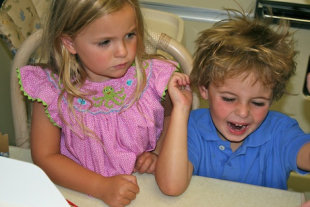
Labels:
Parenting
Friday, 26 October 2012
10 Ways to Get Your Kids Excited About the Election

Labels:
Parenting
Monday, 22 October 2012
Stop Excessive Pregnancy Weight Gain

Sunday, 30 September 2012
Mom’s Story: Writing to Survive a Son’s Prison Term

Labels:
Parenting
Wednesday, 19 September 2012
Why Are Some Kids so Mean?
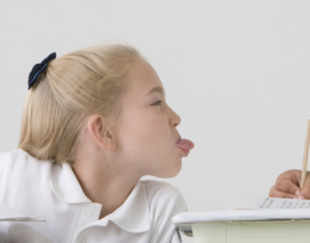
Labels:
Parenting
Friday, 27 July 2012
If Your Kid is in My House, I'll Discipline Him My Way

Labels:
Parenting
Saturday, 21 July 2012
Tips on Talking to Kids About Scary News

Labels:
Parenting
Saturday, 7 July 2012
Preventing childhood obesity
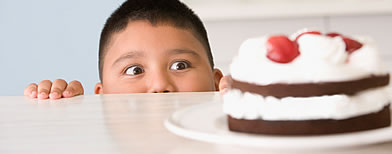
And the stark facts don’t lie: the number of overweight or obese children is increasing year-on-year in Britain. There are currently one million obese children under the age of 16. “Puppy fat”, you say? But the truth is as many as 70 per cent of those kids will grow up to become obese adults. If we continue as we are, 90 per cent of today’s children could be overweight or obese by 2050.
As leading UK obesity prevention organisation MEND points out, the consequences for our health and our children’s will be grave: “Children and adults who are above a healthy weight are much more likely to develop chronic diseases.”
These include heart and blood disease, some cancers, osteoarthritis, fatty liver, Type 2 diabetes, infertility, asthma and high blood pressure – which can lead to stroke. Meanwhile, experts suggest that overweight children will tend to have poorer body image, leaving them susceptible to eating disorders in later life.
The reason for the increase in obesity is complex, but societal changes in the way we eat, what we eat and how active we are conspire to produce the problem. It doesn’t help that there is confusing information out there about what foods are healthy and what aren’t such as so-called “low fat” products, which can be high in sugar.
So how can you act now to prevent obesity in your children before it happens? For Childhood Obesity Week (July 2-8) we bring you our top ten tips to keeping your kids on the straight and narrow:
1. Meal Times
The modern trend for snacking on the go has partly contributed to our inability to fathom when we are genuinely hungry and adds to the calories we intake every day. Keep regular, proper mealtimes for the family including breakfast. Even better, aim to eat seated around a table. It is good to avoid distractions during a meal, so that food is eaten consciously. As the Department of Health’s Change4Life programme notes: “Growing bodies respond better to routine.”
2. Swap the snacks
Swap sugary snacks and drinks to ones that are lower in sugar. It is best to keep sugary foods to mealtimes (e.g breakfast cereals) than to eat them as snacks. So switch sugar soft drinks for water, skimmed milk or well-diluted pure fruit juice, swap sugary snacks such as cakes and biscuits for fresh fruit, a chunk of cheese or bread-based options such as a scone or currant bun. Buy reduced sugar jams and choose canned fruit in juice rather than syrup.
3. Check the labels
Check the labels of seemingly healthy ‘low fat’ options for the sugar content. Look for the ‘carbohydrates (of which sugars) figure - ‘high’ sugars is more than 15g of total sugars per 100g; ‘low’ is 5g of total sugars per 100g. Added sugars will be high up in the ingredients list, too. Other terms include sucrose, glucose, fructose, maltose, corn syrup and honey.
4. Serve up ‘me-size’ meals
Resist the urge to dole out extra portions on your kids’ plates – or to insist they finish everything in front of them. It’s vital to make sure children get the right amount for their age. Respect your child’s appetite – their bodies know how much they need.
5. Follow the ‘five a day’ rule
You’ve heard it a million times before, but do try to dole out five portions of fruit and veg a day – it’s easier than you might think. Some NHS tips include adding fruit, such a banana, strawberries or sultanas, to a child’s breakfast cereal; giving dried fruit as a snack; popping extra vegetables in a pasta sauce or casserole for dinner.
6. Get them moving
Exercise is vital at all ages: the NHS points out, for instance, that children under the age of five who can walk unaided should be physically active for at least three hours a day, whether indoors or out. And those aged five to 18 should do at least one hour of aerobic activity every day – a mix of moderate activities such as walking to school, rollerblading, skateboarding or playing in the playground and more intensive exercise such as running, playing chase, vigorous dancing, football or riding a bike fast or on hills.
7. Cut back fat
As well as sugar, cutting back on fat is a key tool in the battle against obesity. The easiest and surest method is to limit junk food, and too many fatty treats such as cakes, crisps and chocolate. Children – especially the under-twos – do need a certain amount of healthy fat in their diet so when they are very young make sure they have full fat milk and dairy products. You can switch to lower fat varieties over the age of two. But watch out for the “bad” fats – saturated fat – in foods such as processed meats (burgers, sausages), pastry, coconut and palm oil. See Change4Life for more ideas on where to cut down on fatty foods.
8 .Don’t use sweet treats as a reward
Try not to get into the habit, from the outset of weaning, of ‘rewarding’ good eating with a sweet treat at the end. Limit desserts to special occasions. A yoghurt or piece of fruit is fine if your child is still peckish after their meal.
9 .Limit the telly
It’s a cliché but too much time spent stuck in front of the TV or computer games eats into the time spent engaged in active exercise. Place strict controls on your child’s TV and computer viewing habits to ensure they are encouraged into active play as much as possible – even if it’s just skipping in the garden or racing up and down the stairs.
10. Bring the whole family on board
The only sure way to ensure healthy eating and healthy habits is to set an example as a whole family – so don’t tuck into sweet treats and junk food while your child sits down to a plate of fish pie and spinach; make sure the whole family gets involved in activities at the weekends such as walking, swimming and outdoor games, and try to get everyone to respect mealtimes and sit around the table to enjoy them.
Labels:
Parenting
Friday, 29 June 2012
Why parents "spoil" their kids
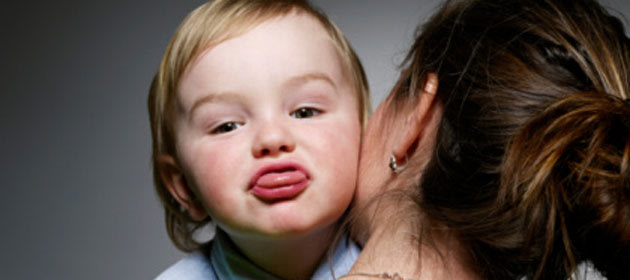
Kolbert wonders why this might be, speculating on our various attitudes towards our children (Do we expect too little? Want too much approval?) and bringing up one anthropologist's theory that a long juvenile/ maturation period is necessary in order to handle the complexities of the modern world.
A response by Lisa Belkin in the Huffington Post retorts defensively that maybe spoiling is good for us, or at least not so bad. Our kids, Belkin says, don't need to be obedient, they need to get into college. They're focusing on grades and extracurricular instead of chores. And anyway, she writes, we all have so little time together, let's enjoy it instead of enforcing discipline.
Any parent with common sense knows that "spoiling" is bad, it's bad for kids, primarily. Kids aren't ready to be in charge yet; that's what the parent is for. Or, as Robert J. MacKenzie, a family therapist, educational psychologist and creator of the "Setting Limits" program told Yahoo! Shine, indulging children, "decreases their sensitivity and respect for the rights, feelings and boundaries of others. That creates a 'me first' generation that believes 'rules are for other people.'" Not a good result, even if they do get into college.
The lead anecdote in the Kolbert piece compares contemporary middle-class children in Los Angeles with children in the Peruvian Andes, and is taken from an article in the journal Ethos by the UCLA anthropologists Elinor Ochs and Carolina Izquierdo. The American children had to be nagged mercilessly to do even the smallest chore (as no parent will be surprised to hear). In the Peruvian Andes, however, six-year-olds routinely make themselves useful by sweeping sand off of sleeping mats and catching and cooking crustaceans for the adults' dinner.
This is funny, but it's unhelpful in that it makes child-discipline feel mysterious and wishful. If only times were simpler and we all lived hunter-gatherer existences in the Amazon, our kids would behave! No wonder Lisa Belkin just gives up and embraces the positives about spoiling.
However, Allison Pugh, a sociologist who has studied family life and the author of Longing and Belonging: Parents, Children and Consumer Culture made a different suggestion to Yahoo! Shine. "The New Yorker piece exemplifies the trend in our culture; we blame children for the symptoms without doing a lot of self examination," she says. "We marvel at the six-year-old [in the Peruvian Andes] who just chipped in. That six-year-old wasn't born chipping in; she was taught."
A similar view comes from Babble writer and mother of five Meagan Francis, whose essay "Why Household Chores Mean Happier Kids," up now in At Home section of Shine, put it a different way: "Frankly, expecting kids to pull their weight--and enforcing those rules day in and day out--is tough. When I had 'just' the two kids, the daily trade-off hardly seemed worth it: It was better to just do it myself than try to oversee a pair of rambunctious, clumsy, pint-sized employees."
Sociologist Pugh cautions against concluding, however, that American parents are just lazy or American children are just bad--what she calls the "individual vice" argument--and instead suggests we look to our culture, specifically the demands of the American workplace.
"Americans work more hours than anyone else in the universe," she says. "There's a drive for efficiency. It's just more efficient to do chores yourself or outsource them rather than teaching children to contribute. That's a shame, but I don't think it's a children's shame, and it's not just the parents' fault. There are only so many hours in the workday."
This seems like a practical, rational conclusion: We don't discipline our kids because it takes time, and we often quite literally don't have the time. That is a relatively clear, and a particularly American issue. And if we identify the source of the problem, our chances of solving it-i.e. spoiling our kids less, which, yes, needs to be done-might improve, with or without the crustacean dinner.
Labels:
Parenting
Friday, 22 June 2012
Why My Toddler Wears a Leash
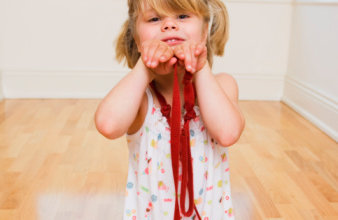
We originally started using the toddler leash when my oldest son started walking. I was pregnant with my middle son and my oldest was no longer interested in the stroller. Just like all of our kids, once he learned how to walk it was his preferred method of travel.
If we tried to put him inside a stroller, he had a nuclear meltdown and it remained that way for a while. I think it was the point where he realized walking could make his little legs tired as hell that finally made him accept the stroller, though even then it was only once he was completely worn out from walking.
The same thing happened with Ben, and now I am just waiting for Addie to really get the hang of this walking thing; I'm sure she's going to be off running just like they were. To me, I look at the leash as a safety device. I don't look at it as a leash - it's a safety harness, a backpack that helps us to ensure the safety of our kids when we are out in a public place.
Not only do we use the monkey backpack as an actual backpack to store things in, but we use it to make sure that our youngest toddler is S-A-F-E! It doesn't mean we can't control our children; it means we value their lives far too much to risk an accident that easily could be prevented.
I would rather people with hang-ups about these contraptions give me nasty looks than have my toddler accidentally run in the wrong direction onto the busy road we live on. Or trip off the curb into the road when we are at my husband's firehouse.
Or run off during a busy carnival, or whatever fancy event with a large population we decided to bring our kids to for the day. It's just another precaution I take while I manage watching all three children.
It isn't about power or control and it isn't about treating a toddler like a pet. It is better safe than sorry to me, because I could never forgive myself if any of my children were hurt in an accident that could have easily been prevented.
Labels:
Parenting
Monday, 11 June 2012
How to Remove the Top 10 Cookout Stains

Working from the inside of the shirt or pants, flush with cold water. (One way to flush: Put a clean pad or layer of paper towels under the spot, then spray with water - the idea is that this will "transfer" the stain. Or hold the fabric under the faucet and let tap water rush through it.) Pretreat with a liquid laundry detergent, then "tamp" the spot to break up the stain. (To tamp, tap the splotch with a soft-bristle brush. Don't scrub.)
Let stand for several minutes; rinse well. Sponge the stain with white vinegar; rinse again. Pretreat again and launder. If that doesn't do the trick, rub with a liquid laundry detergent and soak in warm water for up to 30 minutes. Wash again with bleach, if doing so won't damage the fabric.
2. Beer:
Sponge the spot with cool water or soak for about 30 minutes in a basin of cool water. Treat with a prewash stain remover; launder with bleach, if fabric-appropriate.
3. Blueberries:
Flush with cool water. Then mix 1 tablespoon white vinegar and 1/2 teaspoon liquid laundry detergent with 1 quart cool water. Soak the stain in the solution for 15 minutes, then rinse with cool water. If the stain survives, sponge with rubbing alcohol and rinse thoroughly. Finally, launder using chlorine bleach, if that's safe for the fabric.
4. Catsup:
Working from the inside of the shirt or pants, flush with cold water. (One way to flush: Put a clean pad or layer of paper towels under the spot, then spray with water - the idea is that this will "transfer" the stain. Or hold the fabric under the faucet and let tap water rush through it.) Pretreat with a liquid laundry detergent, then "tamp" the spot to break up the stain. (To tamp, tap the splotch with a soft-bristle brush. Don't scrub.)
Let stand for several minutes; rinse well. Sponge the stain with white vinegar; rinse again. Pretreat again and launder. If that doesn't do the trick, rub with a liquid laundry detergent and soak in warm water for up to 30 minutes. Wash again with bleach, if doing so won't damage the fabric.
5. Ice cream:
Treat with a prewash stain remover, or soak for at least 30 minutes in solution made with an enzyme-based detergent. For older, set-in stains, let soak for several hours. Launder.
6. Mayonnaise:
Scrape off any excess mayo, then treat with a prewash stain remover. Wash in the hottest water possible, per the care label's instructions.
7. Mustard:
Scrape away any globs, then flush under cold running water and treat with a prewash stain remover. Or rub glycerine (available in drugstores) into the spot, let it sit for a few minutes, and rinse. Launder with the hottest water that's safe for the fabric and add bleach, if the care label says it's safe to do so.
8. Soft drinks:
Sponge with cool water or soak for about 30 minutes. Treat with a prewash stain remover and launder with bleach (check the care label first).
9. Strawberries:
Rinse with cool water. Mix 1 tablespoon white vinegar and 1/2 teaspoon liquid laundry detergent with 1 quart warm water. Soak fabric in this solution for 15 minutes, then rinse. If the stain remains, sponge with alcohol and rinse again. Launder with chlorine bleach, if the fabric will tolerate it.
10. Suntan lotion:
Scrape off any excess lotion, then treat with a prewash stain remover. Wash in the hottest water possible, per the care label's instructions.
Labels:
Parenting
Thursday, 7 June 2012
Cooper Hears Mom’s Voice for First Time: Viral Video of Toddler with Cochlear Implants
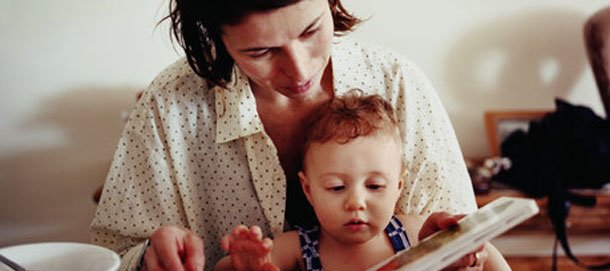
Cooper received cochlear implants in September 2011. "This video shows his absolute first response to any sound whatsoever," says LaScala. "Usually, when the implants are first activated, children cry or do nothing. His response is very rare--we got lucky." LaScala posted the video back in October, but over the last few days it's surfaced--LaScala isn't sure how--and gone viral on the Internet, receiving about half a million hits as of June 4 and comments from around the globe.
After eight months of using the device, LaScala says her son is "doing beautifully." He counts to five, recognizes and says colors, and can understand and recite his "ABCs." LaScala says he can also verbalize things he wants. In the video, the first word Cooper asks to be identified is a gold fish cracker, which might not be a surprise to any mom with a toddler
Labels:
Parenting
Wednesday, 30 May 2012
Why It's Important that My Daughters Play Sports
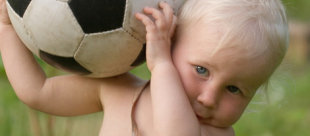
However, we do not settle for mediocrity in this family. Meeting milestones is one thing; crushing them is another. To provide my girls a leg up in life, I decided to set them an achievable goal: the Women's World Cup, 2035.
In the year 2035 my daughters will be 24, the average age of a 2011 Women's World Cup soccer player. I will not rule out qualifying for the 2031 Cup at age 20, but at that fledgling age they will likely spend the majority of their time warming the bench and by 2039 will be past their prime. So it's 2035 or bust.
How did I develop this winning "SAHD-titude"? (Yeah. I went there.) Easy. Have your job taken away from you as a recessionary byproduct and find yourself thrust headlong into stay-at-home parenting with twins. Instead of 9 to 5 at the office with a quick midday lunch, it's 8 to 8 at home, lunch when you want it, and the best part: naptime.
You can accomplish quite a lot in two hours when the deadline is chopped grapes and a bowl of veggie mush for the little ones versus a department meeting to review revenue losses. Recently, I've devoted the many minutes of naptime to concentrating on my children's future and laying out a roadmap to success via organized sports.
As a youth, I was involved in organized team sports and found it extremely rewarding. I wasn't a top student academically speaking, but was fortunate to have found achievement through athletics. The highlight of those high school athletic endeavors came from reaching the final game in our conference as a senior water polo player, only to lose to our rival school.
This valuable experience and the journey to reach it provided me with skills used in my professional career related to team dynamics and competition. The extreme level of fitness has stayed with me to this day (although to a much lesser degree - and not often on display in the swimming pool or wearing a Speedo).
Soccer contains the same positive attributes as water polo and it is far better to enjoy as a spectator, given all the action takes place above ground. However, my interest in pushing my girls is not all selfishly motivated by my viewing pleasure. According to the Institute for the Study of Youth Sports at Michigan State University, "kids who participate in organized sports do better in school, have better interpersonal skills, are more team-oriented, and are generally healthier."
Despite findings like these, coupled with Michelle Obama's oft-discussed "Let's Move!" campaign, the debate for mandatory physical education in schools rages on. While I may not have total control over my daughters' educational environment, we can instill a love of moving at home. If I can provide my girls with a winning recipe for life through athletics by introducing them to a wide array of sports and activities, leading by example as an active adult, and taking them to live events throughout the greater Los Angeles area, I owe it to them to start immediately.
All zealousness aside, sports can provide great lessons and motor skill development for kids - even if my kids don't make a career out of it. I was lucky my water polo coach reminded me there is no job field devoted to polo-ology. For his wisdom, I kept my eye on the ball in and out of the pool.
In truth, my wife and I will encourage our girls to participate in sports, soccer or otherwise, when they are a little bit older. For my girls, my achievable goal is to yell loudly from the stands, encourage them to try again, offer hugs following blowouts, and remind them that while sports are all that and more, ending the day thinking you've won at life is everything.
Labels:
Parenting
Friday, 25 May 2012
More Moms Are Getting Paid Maternity Leave

A study by the U.S. Census Bureau shows that a majority of first-time, working mothers are receiving paid maternity leave. This is the first time this has happened since the government began tracking that data, which was back in the early 80s. Women with college educations reap even more of a benefit; ladies with bachelor's degrees or higher are more likely to get paid maternity leave than those with less than a high school diploma.
Interestingly, it was also found that despite that perk of paid leave, many mothers are working later and later into their pregnancies - and returning to work sooner than mothers in previous generations did.
It's all a reflection of economic struggles, according to experts in the field. More and more often, families are relying on women to be primary breadwinners, which is a huge shift from that archaic "women as homemakers, men as moneymakers" marriage worldview. In addition, working up until the delivery and returning to the office quickly sends a signal to employers that a woman is "dedicated," according to some experts. Cost of childcare - and ability to afford it - is also a huge factor.
Arguments could be made for and against these developments. On the plus side, it's great that more employers are realizing the importance of maternity leave and, as a result, are paying their employees for the duration of the leave. However, it could also be argued that women who aren't taking advantage of their full leave period are missing time that could be spent connecting with their newborns - and precious recuperation time.
Labels:
Parenting
Thursday, 17 May 2012
Can a Kid Be a Psychopath?

In other words: the child becomes a psychopath. But what about the kids who aren't abused? What about the ones who, for no discernible reason, do horrible things to other people? "I've always said that Michael will grow up to be either a Nobel Prize winner or a serial killer," his mother, Anne, tells Jennifer Kahn in a recent shocking New York Times Magazine article.
At age 9, her son has an extreme temper, lashing out violently and deliberately and showing no empathy or remorse. He's intelligent, cold, calculating, and explosive. "It takes a toll," she says, explaining her comment. "There's not a lot of joy and happiness in raising Michael."
Experts are divided about whether it's right to label a child as a psychopath. On the one hand, their brains are still developing; since psychopathy is largely considered untreatable, such a label would carry a heavy, life-altering stigma. On the other hand, identifying "callous-unemotional" children early could allow for successful treatment -- or at least a heads-up to society.
But reaching such a diagnosis can be tricky. Certain tendencies, like narcissism and impulsiveness, that are obvious signs of a psychopath are also part and parcel of childhood. And callous-unemotional kids are often extremely intelligent; they're able to lie and manipulate without remorse, making it harder to understand what they're doing and why. "They don't care if someone is mad at them," Paul Frick, a psychologist at the University of New Orleans, told the New York Times. "They don't care if they hurt someone's feelings."
"If they can get what they want without being cruel, that's often easier," adds Frick, who has spent 20 years studying risk factors for psychopathy in children. "But at the end of the day, they'll do whatever works best."
The New York Times article mentions the case of 9-year-old Jeffrey Bailey Jr., who in 1986 pushed a 3-year-old into the deep end of a Florida swimming pool and then pulled up a chair to watch the child drown; after the toddler died, Bailey got up and went home. It's a disturbing crime -- and there are other equally disturbing cases of young kids committing cold-blooded murder.
- In 1993, Jon Venables and Robert Thompson, both 10 years old, took 2-year-old James Bulger by the hand and led the trusting toddler out of a shopping mall in Liverpool, England. Once away from the mall, they spent hours torturing him before beating him to death, reports said.
- In 1998, Joshua Phillips' mother was cleaning his room when she discovered the dead body of their 8-year-old neighbor, Maddie Clifton, under his bed. The 14-year-old Phillips says he accidentally hit the girl in the eye with a baseball bat and then panicked when she screamed, so he took her to his room and beat and then stabbed her until she stopped.
- Alyssa Bustamente was 15 when she confessed to luring her 9-year-old neighbor Elizabeth Olten into a nearby forest and killing her in 2009. "I strangled them and slit their throat and stabbed them now they're dead," Bustamante wrote in her diary at the time. "It was ahmazing. As soon as you get over the 'ohmygawd I can't do this' feeling, it's pretty enjoyable. I'm kinda nervous and shaky though right now. Kay, I gotta go to church now...lol." In February, she was sentenced to life in prison.
- Eric Harris -- who, with his friend Dylan Klebold, killed 13 people and injured 24 others when they opened fire at Columbine High School in Colorado in 1999 -- had several of the hallmarks of being a psychopath. As ABC News points out, he was described as "controlling, manipulative, and sadistic, but very much in touch with reality."
It's not as if these kids simply lack a moral compass. In "Child of Rage," 6-year-old Beth opens her blue eyes wide and calmly tells her psychiatrist how she'd like to hurt, and even kill, her adoptive parents -- a Methodist preacher and his wife -- and her biological brother. She's calm and conversational as she describes how she has deliberately harmed and killed animals, how she drives pins into her brother and sexually molests him, how she repeatedly slammed his head into a cement floor and only stopped because someone caught her.
Beth suffered extreme physical and sexual abuse and neglect by her biological parents, which experts say could explain her detached, calculating demeanor and her lack of "a sense of conscience." (She now claims that she was "healed" by the time she was 7 or 8, thanks to intensive therapy.) But Michael, in the New York Times Magazine article, seems to have grown up surrounded by love and affection.
So if nurture (or a lack of it) isn't the only way a person becomes a psychopath, how much does nature have to do with it? Some experts say that psychopathy, like other mental illnesses, may have a genetic component; others think that it is a neurological condition all its own, like autism is, though it's not part of the autism spectrum. Though some psychologists believe one can start seeing psychopathic traits as early as age 5, there is not yet a definitive test for children that young.
"You're not born a psychopath but the foundation is there," Robert Hare, a professor emeritus of psychology at the University of British Columbia and author of "Without Conscience: The Disturbing World of the Psychopaths Among Us," told MSNBC. He has developed specialized checklists to determine whether people age 12 and older show psychopathic tendencies. "We're all born with temperaments that can be shaped by the environment."
Labels:
Parenting
Saturday, 12 May 2012
5 Ways Moms Can Stop Feeling Anxious About Alone Time
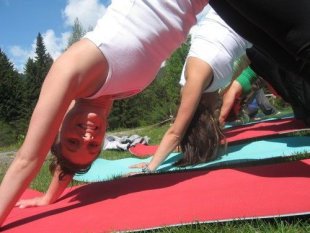
When my kids were babies, anytime I left the house without them, I felt like like I was missing something. Did I forget my wallet? My phone? Walking down the street without a kid in a sling and/or stroller was nothing short of bizarre. I felt so ... light.
But not always in a good way. At first, those rare child-free moments were both disorienting and guilt-inducing. Not only had I forgotten how to function as an individual, I felt like I'd abandoned the tiny creature who, until recently, actually lived inside my body.
In retrospect, of course, I can recognize my fears as nothing more than new mommy anxiety. I can also recognize that alone time is kind of essential to your physical and emotional well-being as a new mom -- and will continue to be just as important 18 years down the line.
Here are a few of the ways I learned to love spending my alone time:
1. Sleeping.
I know, I know -- you have a billion and a half things to get done, you can't waste your child-free time on sleeping! Sure you can -- the less exhausted you are, the more efficient you'll be. (Not to mention more patient, reasonable, and optimistic.)
2. Having uninterrupted conversations.
Whether on the phone or in person, the first time you get to have a good long chat with a friend without stopping to nurse/bounce/feed/soothe/change a crying baby is AMAZING.
3. Exercising.
I'm not talking about a punishing baby-fat blaster regime here -- just something that makes you feel good. Yoga or a long walk. Whatever does the trick.
4. Getting a haircut/facial/manicure.
When you're taking care of somebody else 24/7, being taken care of for an hour or two is a huge mood-booster.
5. Eating.
I'm serious! I mean sitting down at a table in a grown-up restaurant or coffee shop or someplace where actual utensils are used and eating something somebody else prepared for you. Decadent, I tell you!
Labels:
Parenting
Friday, 27 April 2012
Dad catches school staff bullying his autistic son
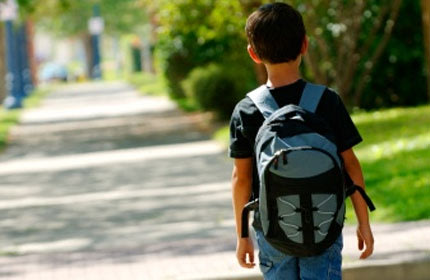
"I could not understand why this was happening," Chaifetz, a 44-year-old animal rights activist in New Jersey, wrote on his website. "I had never witnessed Akian hit anyone, nor could I dream of him lashing out as had been described to me."
In October 2011, he met with Akian's teachers and school therapists. A behaviorist was called in, but during several classroom visits he didn't see Akian become violent. "He tried to create a scenario that would push Akian so far that he would lash out," Chaifetz explained. "And Akian did not."
"If Akian was pushed and didn't do anything, what was setting him off?" his dad wondered. After six months of meetings yielded no answers, he decided that he needed to know what was happening in his son's class. Like Akian, all of the other kids in his class also have autism, and complications from the disorder prevent them from being able to communicate to their parents about what goes on in the classroom.
"The morning of February 17, I put a wire on my son, and I sent him to school," Chaifetz says in a video he created to showcase the audio clips. "What I heard on that audio was so disgusting, vile, and just an absolute disrespect and bullying of my son, that happened not by other children, but by his teacher, and the aides -- the people who were supposed to protect him. They were literally making my son's life a living hell."
The recordings are raw and intense. Angry adults yell at kids to "shut up," "shut your mouth," and "knock it off." Adults have inappropriate personal conversations in front of the children, discussing how drunk they were the night before, complaining about their husbands, and talking in detail about adult issues. More than once, an adult goads Akian to the point of tears -- and then laughs at him.
"Go ahead and scream," one adult hisses menacingly at Akian. "Because guess what? You're going to get nothing… until your mouth is shut." And later: "Oh, Akian, you are a bastard."
"The six and a half hours of audio I had proved that my son wasn't hitting the teacher because there was something wrong with him -- he was lashing out because he was being mocked, mistreated and humiliated," Chaifetz writes on his website, No More Teacher/Bully. "His outbursts were his way of expressing that he was being emotionally hurt at school."
Chaifetz gave the entire six-and-a-half-hour recording to the Cherry Hill School district (you can hear more of the clips here). One aide, Jodi Sgouros, was fired. Another aide and the teacher, whom the Collingswood Patch identifies as Kelly Altenburg, were reassigned but not fired.
"I don't know why the teacher wasn't fired," Chaifetz writes on his blog. "Maybe the District had no choice; perhaps tenure or HR regulations did not permit them to do so. I know that they were sincere and shocked when they found out what happened. I am willing to give them the benefit of the doubt in this."
On Tuesday, officials at the Horace Mann School in Cherry Hill, New Jersey, directed calls from Yahoo! Shine to the Cherry Hill School District's offices; a call to a spokesperson there was not immediately returned. Cherry Hill Public School District spokesperson Susan Bastnagel told the Collingswood Patch on Tuesday only that the incident is "an internal personnel matter that the district took seriously and handled appropriately."
Chaifetz disagrees, and has started a Facebook page and launched a petition at Change.org calling for the teacher's dismissal. He's already gathered nearly 18,500 signatures. "No one who treats children like that, who calls them vicious names, who humiliates them, who batters them verbally, deserves to be a teacher," Chaifetz says in the video.
"How is it possible that teachers and staff can do these things, and you have evidence not just accusations, but evidence and they're still teaching?" he said in an interview with Babble.com. To me, that's the bigger outrage here. How many times has this happened before? How many times will it happen again if I remain quiet?"
For his part, Chaifetz says that what he really wants from the teacher and aides involved is a public apology and a willingness to take responsibility for their actions.
"I want an apology, not for me, but so one day I can play this video back for my son and say Akian, you didn't deserve anything that happened to you," he says in the video. "I'm not going to sue anybody. I'm not going to file a lawsuit. It's not about money. It's about dignity. This is to reclaim my son's dignity."
Labels:
Parenting
Wednesday, 11 April 2012
The Best Cities for Raising a Family

Grand Rapids, Michigan doesn't boast a lot of affluence. The metro area population of 774,000 carries a median household of $47,040, good for just 65th place among America's 100 largest MSAs. The city's major claims to fame come from being a national leader in office furniture production, and for being the hometown of a U.S. president, Gerald Ford.
What Grand Rapids doses have: the distinction of being the best metro area in the country to raise a family in. Income may be relatively low, but the cost of living is even lower. The local school system ranks in the top third in the country.
Commuting to work is a breeze. The housing foreclosure mess didn't leave Grand Rapids unscathed, chopping about 12% off area home values over the past few years. But that's still quite modest compared to many other places. Almost 90% of Grand Rapids' housing stock is affordable to a family at the median income level, the seventh-highest rate in the country. And the local crime rate falls well below the national average.
"The housing bubble never burst because there was never any real bubble," says Grand Rapids Mayor George Heartwell, pointing out the mostly modest, 2,200 square foot colonials that dot the local landscape. Heartwell is a believer in public-private partnerships: Several neighborhood associations, using grant money in partnership with the city, work to keep things in good repair. Call it steady as she goes. If Miami, Florida, with its glitz and glamour giving way to real estate bust is the hare, Grand Rapids is the tortoise. "Even our most depressed neighborhoods are not blighted," he says.
The relative strength of Grand Rapids' housing market is enough to push it past the next two cities on our list, Boise, Idaho and Provo, Utah, both of which are particularly noted for low crime and high school quality. Not to mention the chance to mix urban and outdoor lifestyles.
A 10-Step Financial Plan for New Parents
"For us, it's all about access," says David McCauley, a 48-year-old IT professional who grew up on the east coast and moved to Boise with his family several years ago. "Skiing in 45 minutes, fly fishing in the Boise River, which also has some cool kayaking spots. Mountain biking is literally out my door, and we live downtown." As for the kids? "They ride their bikes all over," says McCauley. "They're allowed to do things alone, but they're never really 'alone'."
Many young single types may judge a city based on its bike friendliness, club scene, and coffee houses per square mile, in addition to the economy. And why not? You're only young once. But once marriage and kids enter the picture, priorities change. School quality suddenly pops up as an issue. And those conditions that matter when you're single - median income levels, housing affordability and commuting hassles - become even more important once you need to answer to more people than yourself.
America's Safest Cities
We measured and ranked America's 100 largest metro areas by median income, overall cost of living, commuting delays, crime statistics, school quality, and housing affordability (measured two ways - by the percentage of people in the MSA owning homes, according to the Census Bureau, and by the percentage of homes in the area that are affordable to a family making the local median income, according to the latest joint study by Wells Fargo and the National Association of Home Builders).
In addition to the Census Bureau, NAHB and Wells Fargo, data was provided by the FBI (via CQ Press -crime stats), the Texas Transportation Institute (commuting delays), greatschools.org (school quality rankings) and the Center for Regional Economic Competitiveness (Cost of Living Index).
Other metros making the grade: Youngstown, Ohio, where incomes are still depressed but where cost of living is low and schools are good, and Raleigh, North Carolina, with high median income and top school rating.
Cities Where Buying Beats Renting a Home
Of course, these things always come down to personal tastes and preferences. If you're looking to chase a fortune, party with the stars and feel the energy of millions, go to New York or Chicago. But if you're happy with a solid job that lets you get home in time to see the kids, and where the value of your house isn't likely to crumble tomorrow, the small-city life is tough to beat.
Labels:
Parenting
Subscribe to:
Comments (Atom)